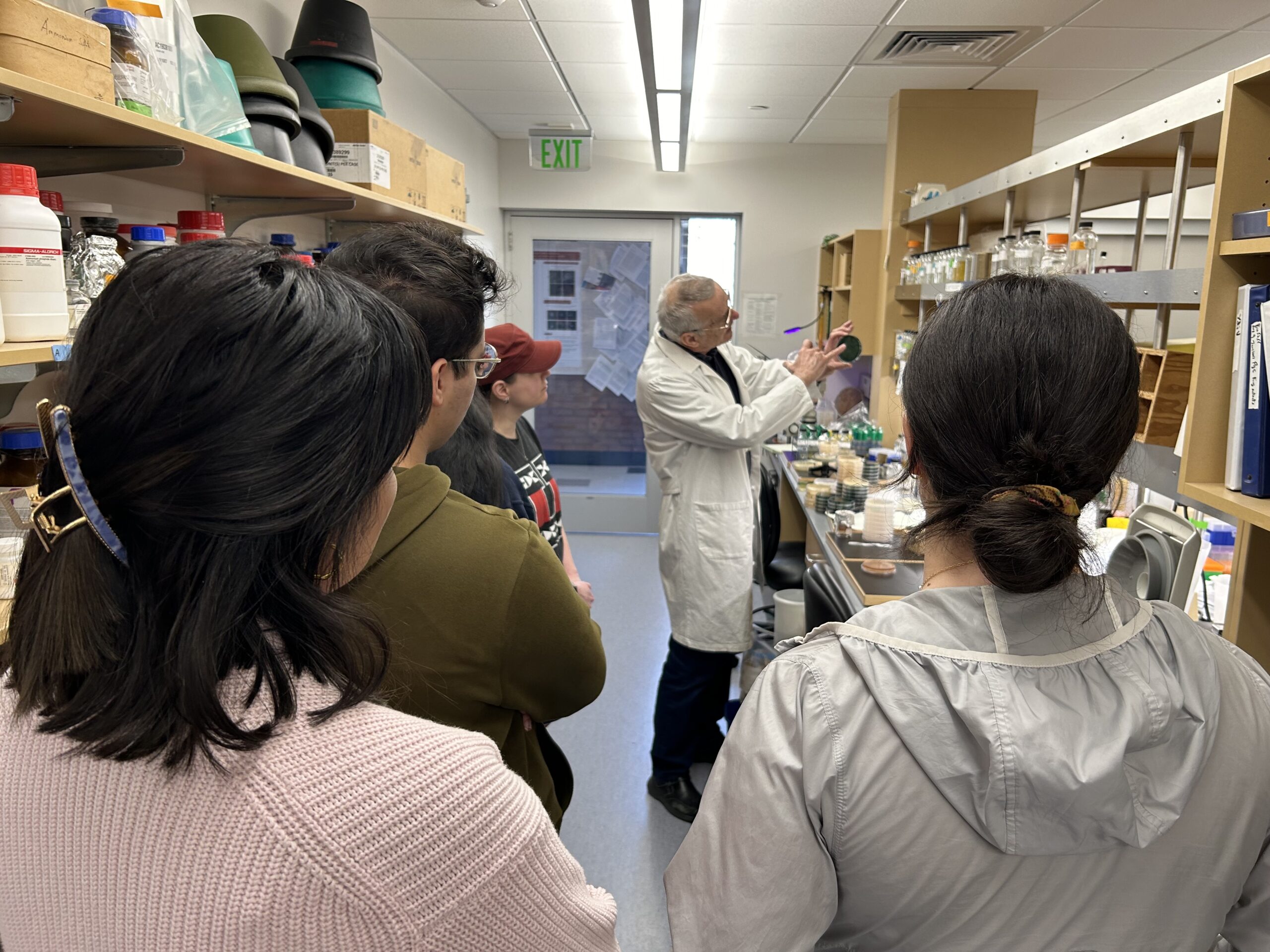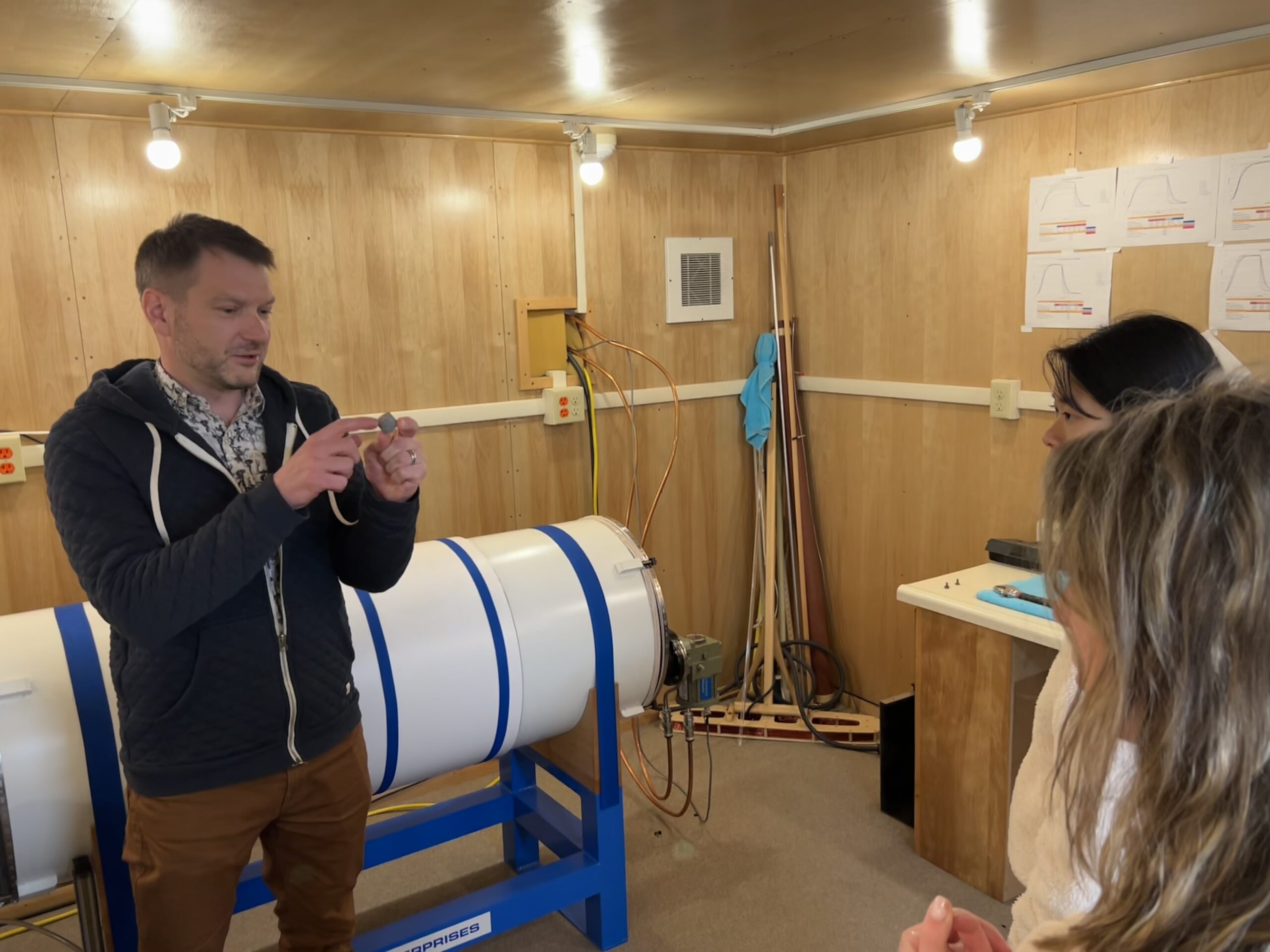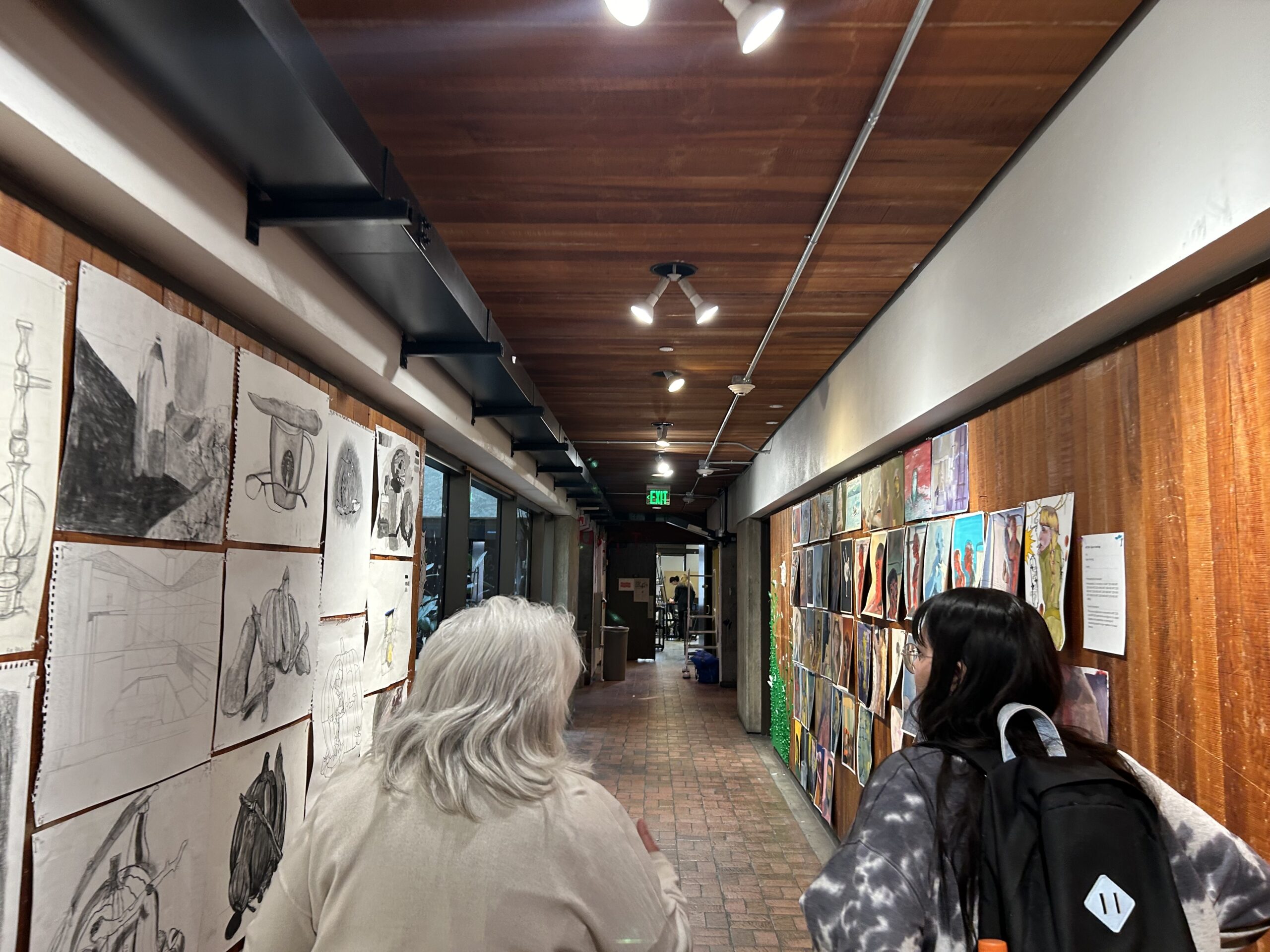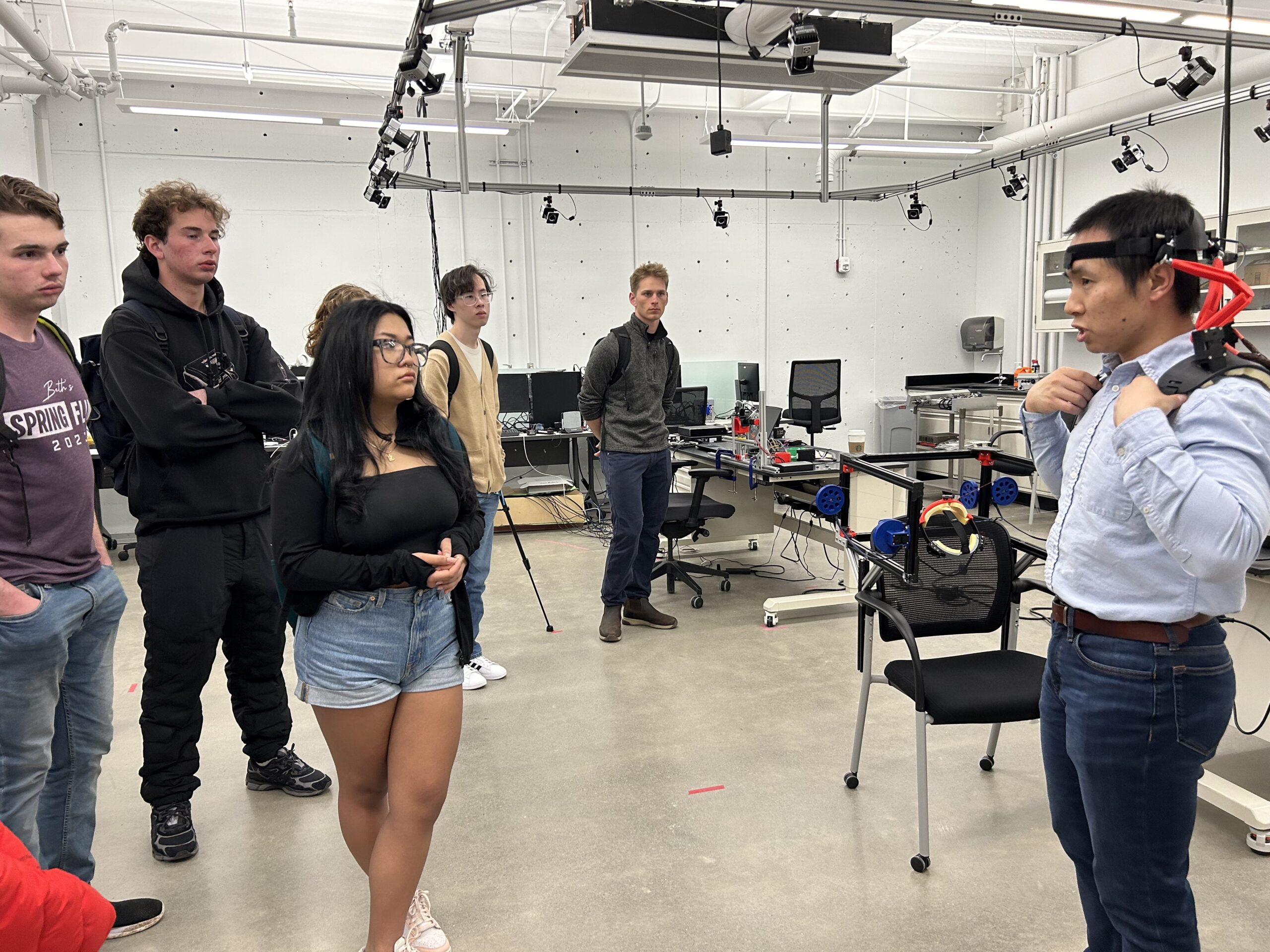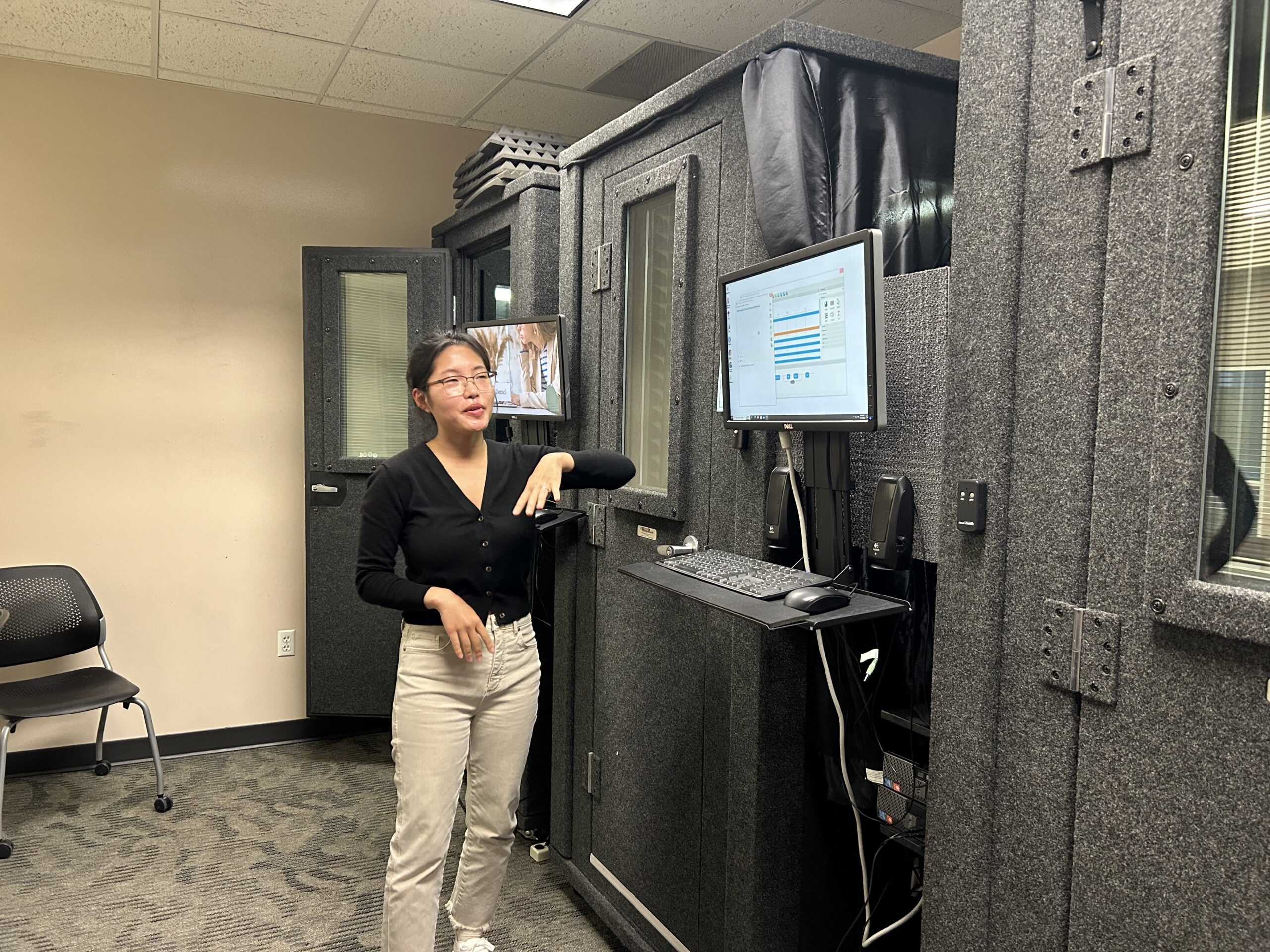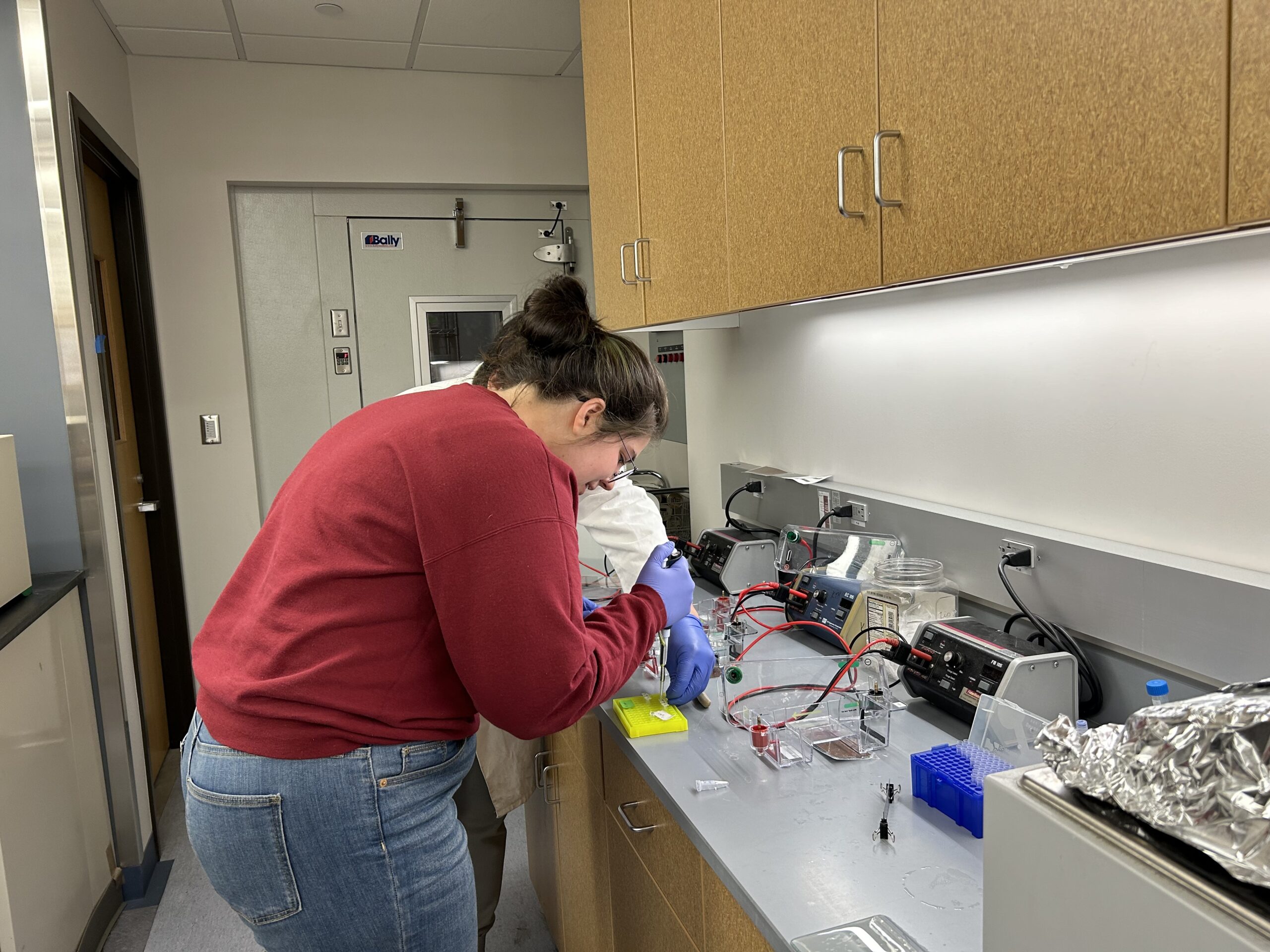We are excited to collaborate with campus partners to have tours of different research facilities at the U! Sign up for the tour!
FALL 2024 TOUR DATES FORTHCOMING
Note: Some tours have limited space. Students who are not Early Exploration Scholars will be waitlisted for tours.
SPRING 2024 Tours
Robotic Solutions
MEK 1333 (map)
March 11, 2024 - 3pm-4pm
Specialize in wearable robotic solutions by leveraging mechanism design and modern computational methods. Thank you to Professor Hoahan Zhang.
Art
ART 161 (map)
March 12, 2024 - 11:30am-12:30pm
Research dependent on professor (no active research). Tour will consist of different locations of the art building and the types of art/research that is done. Thank you to Professor V.Kim Martinez.
Geology
FASB 383 (map)
March 13, 2024 - 12pm-1pm
Field study in conjunction with paleomagnetic, rock magnetic, and collaborative stratigraphic, geochemical, and geochronologic approaches to investigate a wide range of geological puzzles. Thank you to Professor Peter Lippert.
Computing
MEB 3112 (map)
March 13, 2024 - 2pm-3pm
Social computing systems that expand and improve the interface between communities and institutional experts - especially in science and medicine. Thank you to Professor Vineet Pandey.
Electronic Resources & Student Spaces
Marriot Library (map)
March 14, 2024 -12:30pm-1:30pm
Tour of the library electronic resources, student spaces and more. Thank you to Dale Larsen.
Sound & Speech
LNCO 2324 (map)
March 15, 2024 - 9:30AM-10:30AM
Insight from phonological theory, and psycholinguistics in order to better understand the nature and persistence of cross-language influence in speech perception and the acquisition of an L2 sound system. Thank you to Professor Rachel Hayes-Harb and Professor Shannon Barrios.
Robotic Design
MEB 2407 (map)
March 18, 2024 - 11:30am-12:15pm
Research focus in robot motion planning, autonomous systems, and robot design optimization. Thank you to Professor Alan Kuntz.
Genetics
BIO 217 (map)
March 19, 2024 - 12pm-1pm
Develop and utilize genetic approaches to complex biological processes in bacteria. Thank you to Professor Kelly T. Hughes.
Science
HEB 4150 (map)
March 27, 2024 - 12:30pm-1:30pm
Research centers on developing scale-bridging molecular design approaches following core themes: (i) elucidation of spin- and charge-transport dynamics at organic-inorganic interfaces; (ii) realization of topological states in 2D single-crystalline coordination polymers and small organic molecules; and (iii) development of in situ spectroscopy tools to understand excitonic and free carrier interactions in materials. Thank you to Professor Luisa Whittaker-Brooks.

